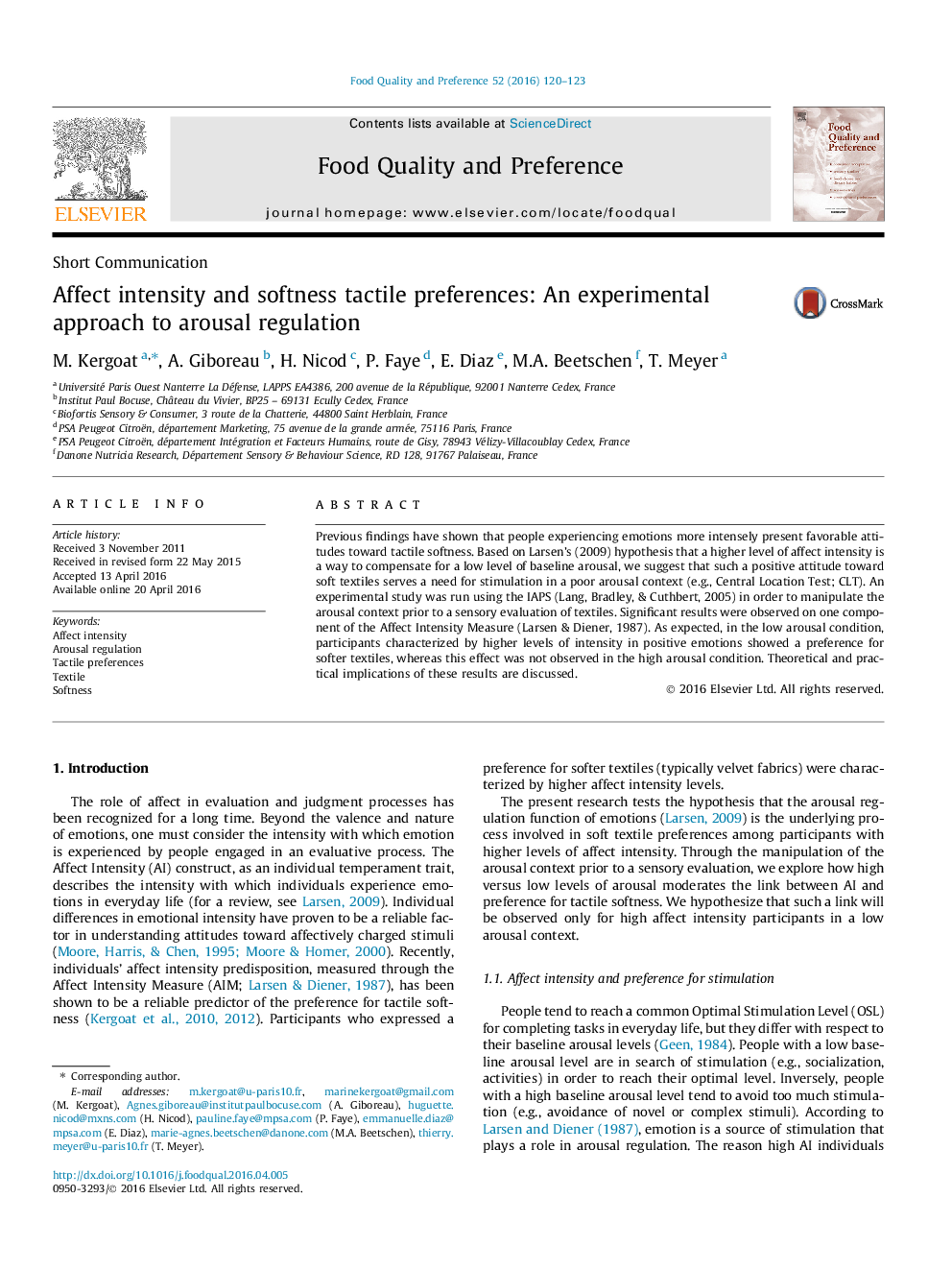| Article ID | Journal | Published Year | Pages | File Type |
|---|---|---|---|---|
| 6261036 | Food Quality and Preference | 2016 | 4 Pages |
â¢High Affect Intensity people have a preference for soft textiles.â¢Such an attitude serves a need for positive stimulation in a poor arousal context.â¢Arousal context manipulation affects sensory tactile preferences.
Previous findings have shown that people experiencing emotions more intensely present favorable attitudes toward tactile softness. Based on Larsen's (2009) hypothesis that a higher level of affect intensity is a way to compensate for a low level of baseline arousal, we suggest that such a positive attitude toward soft textiles serves a need for stimulation in a poor arousal context (e.g., Central Location Test; CLT). An experimental study was run using the IAPS (Lang, Bradley, & Cuthbert, 2005) in order to manipulate the arousal context prior to a sensory evaluation of textiles. Significant results were observed on one component of the Affect Intensity Measure (Larsen & Diener, 1987). As expected, in the low arousal condition, participants characterized by higher levels of intensity in positive emotions showed a preference for softer textiles, whereas this effect was not observed in the high arousal condition. Theoretical and practical implications of these results are discussed.
